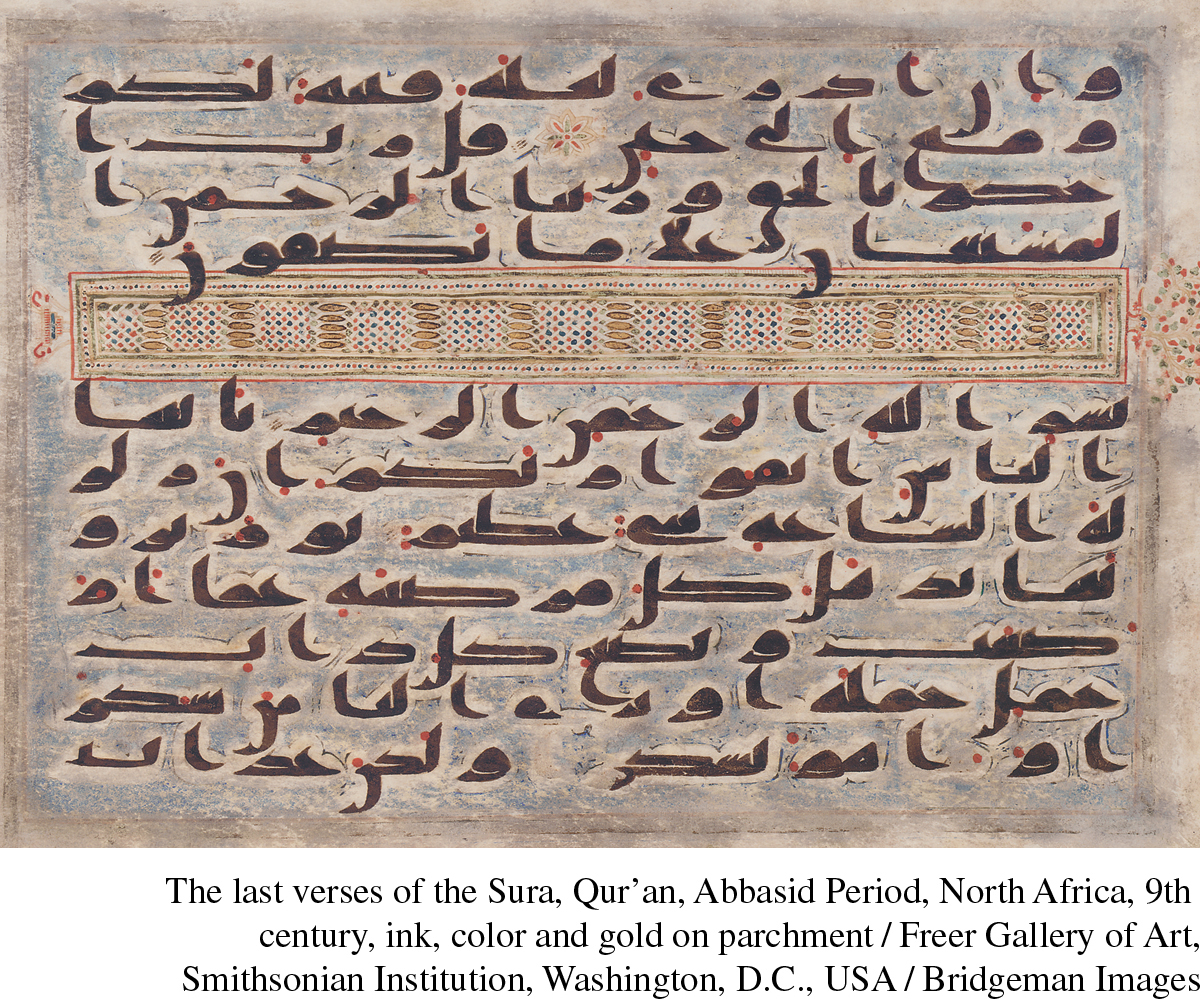The Prophet Muhammad and the Faith of Islam
The Prophet Muhammad and the Faith of Islam
Muhammad was born in Mecca. Orphaned at the age of six, he went to live with his uncle, a leader of the Quraysh tribe. Eventually, Muhammad became a trader and married Khadija, a rich widow. They lived (to all appearances) happily and comfortably. Yet Muhammad sometimes left home to pray in a nearby cave, practicing a type of piety similar to that of the early Christians.

Around 610, on one of these retreats, Muhammad heard a voice and had a vision that summoned him to worship the God of the Jews and Christians, Allah (“the God” in Arabic). Over the next years, he received messages that he understood to be divine revelations. Later, when these messages had been written down and compiled—a process completed in the seventh century, but after Muhammad’s death—they became the Qur’an, the holy book of Islam. Qur’an means “recitation”; each of the book’s parts, called suras, is understood to be God’s revelation as told to Muhammad by the archangel Gabriel—the very Gabriel of the Hebrew and Christian Bibles—and then recited by Muhammad to others. Written entirely in verse and focused on the divine, the Qur’an stood apart from traditional Bedouin poetry, which had emphasized the here and now.
Beginning with the Fatihah, which praises God as the “lord sustainer of the worlds,” the Qur’an continues with suras of gradually decreasing length. They cover the gamut of human experience and the life to come after death. For Muslims, the Qur’an contains the legal and moral code by which men and women should live: “Do not set up another god with God. . . . Do not worship anyone but Him, and be good to your parents.” It emphasizes the family—a man, his wife (or wives), and children—as the basic unit of Muslim society. Islam replaced the identity and protection of the tribe with a new identity: the ummah, the community of believers, who share both a belief in one God and a set of religious practices. Stressing individual belief in God and adherence to the Qur’an, Islam had no priests or sacraments, though in time it came to have authoritative religious leaders who interpreted the Qur’an and related texts. (See “Document 8.1: The Fatihah of the Qur’an”)